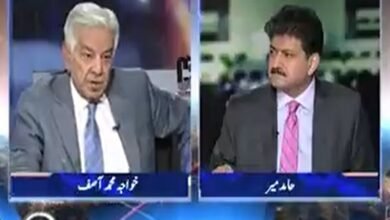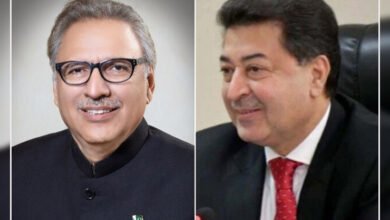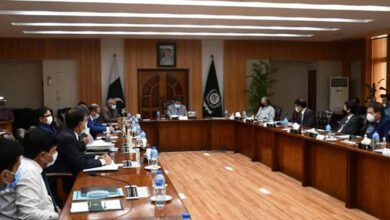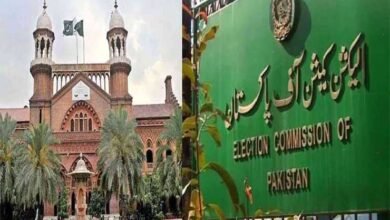Punjab CM election: PA sees peculiar implementation of LHC verdicts
The political crisis has not ended yet in Punjab as the House witnessed the contrasting implementation of the LHC verdicts.
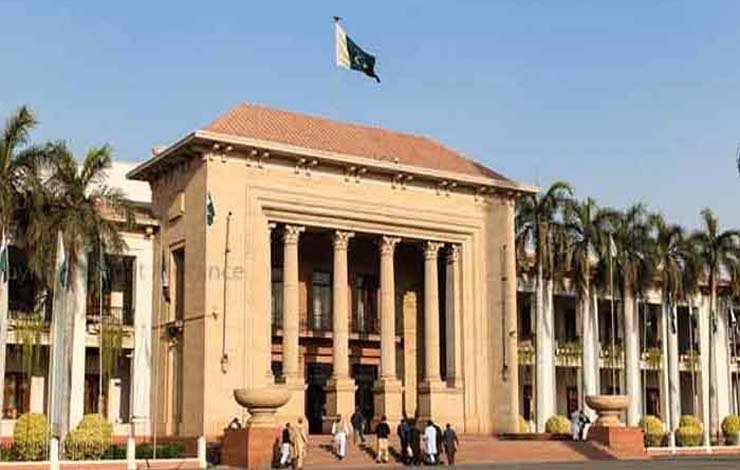
LAHORE: The political crisis has not ended yet in Punjab as the House witnessed the contrasting implementation of the Lahore High Court’s (LHC) verdicts including its orders for the recounting of votes for Punjab Chief Minister Hamza Shahbaz’s election and direction to the Election Commission of Pakistan (ECP) to notify Pakistan Tehreek-e-Insaf (PTI) lawmakers on the reserved seats.
The election of Punjab CM will be held in the Punjab Assembly today following the directives of the Lahore High Court (LHC) as it ruled to recount votes for the election of Punjab’s chief minister held on April 16 excluding 25 dissident lawmakers of the PTI.
A five-member bench comprising Justice Sadaqat Ali Khan, Justice Shahid Jamil Khan, Justice Shehram Sarwar Chaudhry, Justice Sajid Mahmood Sethi and Justice Tariq Saleem Sheikh announced the verdict with a 4-1 majority.
In a short order issued after the hearing, the LHC instructed that votes in the election held on April 16 be recounted after excluding 25 votes of the defecting lawmakers. If the required majority for Hamza — which is 186 votes in the 371-member strong house — to stay the CM is not secured, the election will be held again under Article 130(4), unless another candidate has majority votes.
According to Article 130(4), in the second round of voting, a member will not require 186 votes but simply needs a majority of those “present and voting” to be elected the chief minister, Dawn News reported.
The court said that Hamza will cease to be the chief minister if he loses the required majority after the exclusion of 25 votes by the presiding officer. However, it pointed out, that functions performed and powers exercised by Hamza will be “protected under the de facto doctrine” in accordance with the law.
For the recounting of votes and re-election, if required, a PA session will be held on July 1 (tomorrow) at 4pm. The LHC stressed that the session cannot be prorogued until the election process was completed and the presiding officer “intimated the result of the elected chief minister to the governor”.
The governor shall perform his duty, under Article 130(5), of administering oath without any hesitation, at any time before 11am the very next day, it directed.
The court added that “any attempt of disorder from any quarter shall be taken as contempt of court and shall be proceeded accordingly by this larger bench on formal information by any person”.
The opposition parties, PTI and Pakistan Muslim League Quaid (PML-Q), opposed the LHC ruling and announced approaching the Supreme Court (SC) to challenge the verdict. They said in a press conference yesterday that the Punjab CM election could not be held with an incomplete quorum as their six lawmakers were not present in the country.
They also demanded to hold the Punjab CM election after the by-election besides urging ECP to notify PTI lawmakers on the reserved seats.
On the other hand, ECP failed to implement the LHC verdict in which it was directed to notify the PTI lawmakers.
On June 27, the Lahore High Court (LHC) accepted the plea of the PTI and directed the Election Commission of Pakistan (ECP) to notify the members of Punjab Assembly’s reserved seats.
The PTI had approached the LHC against the ECP decision deferring the issuance of notification of reserved assembly seats till the by-elections on 20 vacant seats.
On June 2, the ECP had ruled that the allocation of reserved seats — three women and two minorities — would be notified after the conclusion of the by-polls scheduled on July 17.
The seats — for which the by-elections will take place — fell vacant after the ECP had de-notified 25 PTI dissident MPAs — 20 general candidates, three women, and two minority members — who had voted for PML-N’s Hamza Shahbaz against their party’s line during the Punjab chief minister’s election last month, The News reported.
“ECP is bound to issue notification under Section 6 of Article 224 of the Constitution,” read the petition. The petitioner had pleaded with the court to suspend the ECP’s verdict and order to notify new MPAs on the five reserved seats, recommended by the PTI.
After the LHC order, the five reserved seats will be allocated to the PTI which will increase their number in the provincial legislature. After the conclusion of the hearing, the LHC announced the order, admitting the PTI’s plea.
The ruling PML-N later filed an intra-court appeal against the Lahore High Court’s verdict ordering the ECP to notify lawmakers on reserved seats of the Punjab Assembly as per the list provided by the PTI.
In its intra-court appeal, the PML-N said that the LHC single bench issued the ruling without fulfilling the legal requirements. The party maintained that LHC’s order to issue notifications on the reserved seats is against the law.
The Punjab assembly has a total of 371 members, of which, at the moment, 20 seats are vacant and are up for re-polling on July 17. This brings down the total numbers of MPAs in the Punjab assembly down to 351.
The ruling PML-N has the majority of 165 members. However, four of its MPAs had previously rebelled against the party leadership, of which two are still undecided about staying with the PML-N. This leaves the PML-N with only 163 MPAs.
Political analysts expressed surprise over the different implementation of the orders given by the same courts. They expressed suspicions that the implementation of the LHC verdict in two different way will further intensify the political crisis in Punjab instead of ending it.
